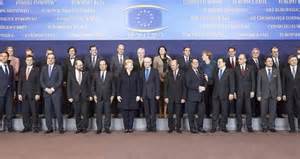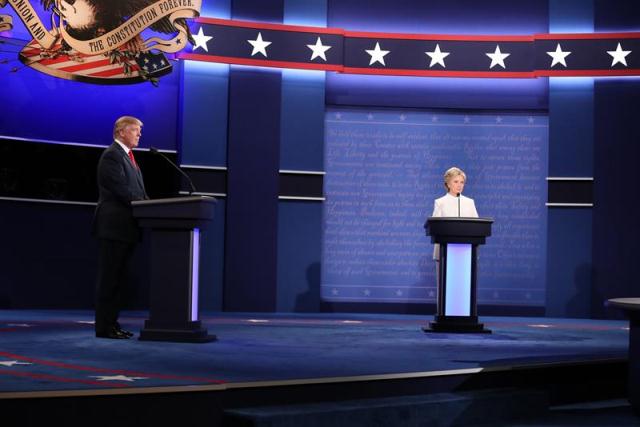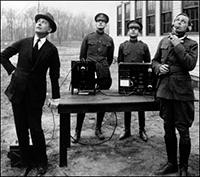For the second time the heart of Europe has been attacked. Once again, like after the tragic events that occurred at the beginning of 2015 with the Charlie Hebdo attacks, the “People of Europe” feel unsure about their future, they face have to face a tragic reality. France has officially declared a state of emergency, introducing strong security controls at its borders and declaring a three-day mourning period as a result of the recent killings. French President Francois Holland called it using tough but appropriate words, c’estun act de guerre, it’s an act of war he said – that was organized, prepared and planed from outside our borders. One hundred and thirty dead, the number of wounded in the hundreds, this, the largest series of terrorist attacks since the beginning of the French 5th Republic. It was carried out in the 10th and 11tharrondissements of the city, areas hosting, among others, part of the poor immigrant workers of Paris.
The details of the night will be examined to a finite degree by the secret services in a bid to answer the main question, how was all this possible? What is already known though, is that one terrorist held a French passport and rented a car in Belgium that would be used for one of the attacks; another one was Syrian, he arrived in Greece on the 3rd of November then passed the border with Serbia and eventually with a group of refugees made it to his final destination France, where he even made a request for asylum, as Russian state television reports.
Another identified terrorist, one of those that broke into the concert hall during the rock concert taking hundreds of hostages, has been identified as Mustafa Ismail Ammar. Paris Prosecutor François Molins said this man was born in 1985, he is known to French police forces as he committed 8 law infringements since 2008 up to 2010 but he was never put in prison. In 2010 he was listed as man who shares and supports radical views but he was never associated with terrorists. These are worrisome statements coming from François Molins, as we found out French police was not able to detect a terrorist even among the known supporters of radical Islam.
Daesh and Al-Qaeda both claimed responsibility for the attacks the following morning, again, like after the aforementioned Charlie Hebdo events, it is clear that terrorist’s training was professional and their plan was meticulous. The secret services will figure out who precisely planned and put into practice these attacks, how the organization worked and why once again France was the chosen target. The organization of these attacks didn’t pass unseen by the intelligence officials as France, together with the US and Iran, were even alerted days before by Iraqi intelligence forces of a possible terrorist attack.
It is believed that three different groups operated on ground, having among their members, teenagers as young as 15 years old. One of these groups operated near the Stade de France where the first explosion was heard. Thousands of people had not been realized about what had just occurred, as supporters said following the match, they simply thought that the explosions were firecrackers we are so used to at games. French police meanwhile was already evacuating the eminent supporters form the tribune of honor, President François Holland followed by the German Foreign Affair Minister, Franz Walter Steinmeier.
Right after the first explosions some media broadcasters stated how these attacks could be seen as a direct response to recent French air force strikes targeting oil refineries on the territory controlled by ISIS in Syria. However, experts insist that this option can be proven wrong as the terrorists followed an extremely detailed plan that would have required months of preparation: shootings, explosions, seizure of hostages show a diversified strategy, not to talk about the burden of gathering the necessary weaponry. The situation has to be looked at from a wider angle, it is not a reaction to a precise action, it is now war, just as François Holland said, and it should be called this way to avoid the risk of losing it.
This is not the sort of war that took place in the past. It is a terroristic, global, technological and religious war as Giovanni Sartori calls it in his book published in summer 2015 “la corsa verso il nulla”. It doesn’t show the characteristics a normal war has, there are no defined armies facing each other, no defined battlefield where in which the clash could be restricted to. In reality, the technique implemented here is the exact opposite: indiscriminate killing of innocent women and men aiming to create an atmosphere of terror.
Clearly enough at the previously planned G20 meeting in Antalya (Turkey), where the world leaders gathered, on Sunday November the 15th, the theme of terrorism skyrocketed and became topic number one for discussion along with the Syrian and Ukrainian situations. During a two day period the area of the Summit in Belek, a resort town 50 kilometers from Antalya, was fully isolated from the outside world. 30 hotels were not only under the special force control, but also surrounded by an impenetrable fence along the perimeter.
Unfortunately the immediate results after the two day meeting were not as brilliant as we all hoped them to be, given the fact that this G20 was taking place right after the attacks in Paris, but thankfully a key factor did change. Russian President Vladimir Putin stated that during the summit, he felt a change in the approach to the idea of a truly comprehensive coalition. He specifically referred to his bilateral meetings with the members of the western international coalition that is currently bombing the IS, It is finally growing the awareness that evil such as international terrorisms can be faced only basing our actions on communication. Unfortunately though, he faced the summit stating as well that not enough is being done to put an end to the financing of Daesh by single individuals. He furthermore added that according to Russian intelligence information, finances arrived from 40 different states, including some members of the G20.
The days after the summit, thankfully were quite productive. The Russian ministry for foreign affairs and the US Department of State intensified collaboration. On the 20th of November John and Kerry Sergey Lavrov discussed the newly established communication channel between official Damascus and a delegation coming from various political fractions, so called moderate opposition, giving a positive evaluation to this fact. What is currently holding back the Obama administration from a stronger collaboration with Putin though, is Russia’s intervention against multiple terrorist groups on the ground and not exclusively against Daesh. Russia and France are already coordinating their actions in the Mediterranean as a French aircraft arrived off the shores of Lybia carring more than 30 airplanes. François Hollande referred to France’s collaboration with Russia and the USA as a grand and single coalition.
French optimism is comprehensible, unfortunately though, all efforts could dissolve as Crimea’s legacy is still present and major disagreements remain over the political future of Syria. A further problem is the Middle East itself given the necessity to involve regional actors with strongly overlapping foreign agendas. Countries like Turkey, Qatar, and Saudi Arabia still want a precise date for Assad’s departure. A wider coalition, all considered, seems the only viable approach for the most effective result possible. If all the work done doesn’t bring us to the formation of this coalition, security might as well become our number one problem for an indefinite period of time with direct consequences for all of us. It has been proven by facts that this war cannot be won without a common and comprehensive military strategy. For the moment we are heading in the right direction.
Robert Ballante
Perfiles de los votantes de Clinton y Trump
El próximo 8 de noviembre, los votantes de los Estados Unidos irán a las urnas a votar para escoger a su próximo presidente que ocupará el despacho oval de la Casa Blanca. Aunque las elecciones dividen a la sociedad norteamericana, Hillary Clinton es la favorita para ganar, sin embargo, aparentemente la mitad de los votantes […]




